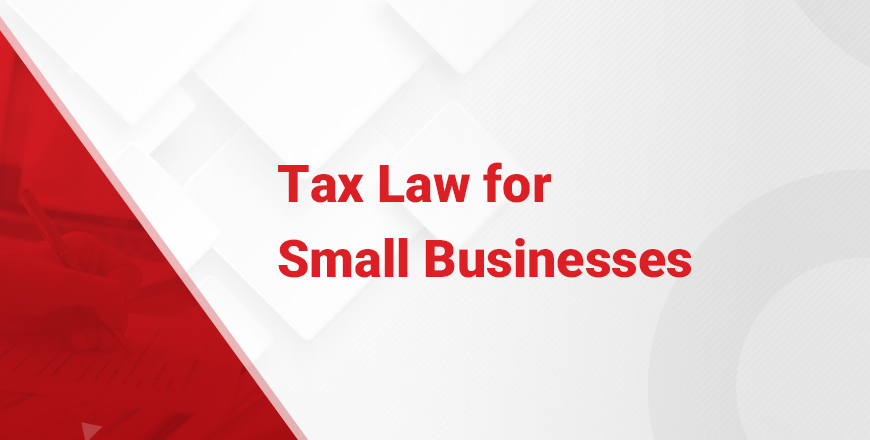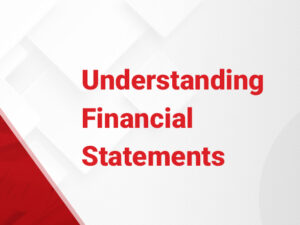Tax Law for Small Businesses
- Description
- Curriculum
- Reviews

Tax Law for Small Businesses designed to give small business owners a comprehensive understanding of tax law, focusing on business tax obligations, deductions, and effective communication with the IRS. Each module covers critical areas that small business owners need to manage, including the different types of taxes, available deductions, and how to maximize tax benefits. The course also equips participants with strategies for long-term tax planning and insights into navigating audits or IRS inquiries.
Main features:
- Comprehensive Overview of Business Tax Obligations: Explore various tax types—income, payroll, and sales—and understand how to comply with filing deadlines and requirements to avoid penalties.
- Strategies for Tax Deductions and Credits: Discover the deductions and credits available to your business and learn how to maintain accurate records to reduce your tax liabilities effectively.
- Proactive Tax Planning for Financial Optimization: Gain valuable insights into early tax planning and leveraging tax-advantaged accounts, such as retirement plans, to maximize both personal and business financial health.
- Practical Guidance for Dealing with the IRS: Learn how to confidently interact with the IRS, respond to notices, and prepare for audits, ensuring you’re prepared for any tax-related inquiries or challenges.
This course is ideal for small business owners, entrepreneurs, and freelancers who want to better understand their tax responsibilities and minimize their tax burdens. It’s also perfect for those looking to enhance their financial planning strategies while ensuring compliance with tax laws.
-
1Module 1: Introduction to Tax Obligations
Introduction for small business owners to the importance of understanding their tax obligations. It emphasizes the need for awareness of tax responsibilities to maintain financial health and compliance with tax laws.
Participants will gain insights into the various topics covered throughout the course.
-
2Module 1: Introduction to Tax Obligations
-
3Module 2: Business Tax Obligations
Explore the various types of taxes applicable to small businesses, including income, payroll, and sales taxes.
The module covers essential filing requirements and deadlines to help business owners avoid penalties. Additionally, it discusses the necessity of estimated tax payments, ensuring that attendees have a clear understanding of their tax obligations.
-
4Module 2: Business Tax Obligations
-
5Module 3: Tax Deductions and Credits
This module focuses on the opportunities for reducing tax liabilities through deductions and credits available to small businesses.
Participants will learn about common deductions (e.g., home office, equipment, travel) and the various business tax credits they may qualify for. Strategies for maximizing these deductions will also be discussed, highlighting the importance of meticulous record-keeping and professional consultation.
-
6Module 3: Tax Deductions and Credits
-
7Module 4: Tax Planning Strategies
Effective tax planning is crucial for optimizing financial outcomes. This module emphasizes the significance of early tax planning and making informed financial decisions throughout the year.
Participants will learn best practices for record-keeping to capture all eligible deductions and explore how to leverage tax-advantaged accounts to enhance their personal and business financial positions.
-
8Module 4: Tax Planning Strategies
-
9Module 5: Dealing with the IRS
Navigating interactions with the IRS can be challenging for small business owners.
This module prepares participants to communicate effectively with the IRS and respond appropriately to notices. It covers essential preparation steps for audits, including gathering necessary records and understanding the audit process. This knowledge will empower attendees to handle IRS matters with confidence.
-
10Module 5: Dealing with the IRS
-
11Module 6: Additional Resources
This module provides participants with valuable resources to further enhance their understanding of tax laws and compliance strategies. It includes guidance on finding tax professionals and advisors who specialize in small business needs.
Participants will also learn about helpful tools and resources available on the IRS website and opportunities for attending workshops and seminars for continuous education.
-
12Module 6: Additional Resources
-
13Module 7: Q&A Session
In this interactive module, participants will have the opportunity to ask questions and seek clarifications about the topics covered throughout the course.
The session aims to address specific concerns related to small business tax laws and provide access to follow-up resources to support ongoing learning and application of knowledge.





